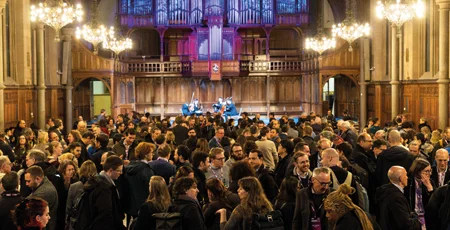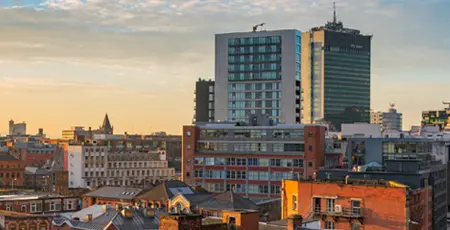Recovery strategies
Post Covid a major research project is helping societies prepare for future emergencies.
In January this year academics from across Alliance MBS and the University of Manchester began work on a major study which will develop a new framework to design and implement recovery strategies that prepare for future global emergencies.
It will also develop ambitious renewal initiatives that facilitate local resilience.
The research is co-funded by the UK’s Economic and Social Research Council and brings together a significant multi-disciplinary team that will help develop the framework. Here we detail a selection of just some of the individual research topics that form part of this wider study.
Before, During, and After COVID-19: A Longitudinal Study of Recovery and Renewal
This study develops a recovery and renewal framework using longitudinal data from across a range of countries. It aims to trial a recovery and renewal framework with groups in local and national organisations in five countries to identify how the framework may help them to think about, and coordinate, their approach to recovery and renewal from COVID-19.
COVID-19: coping mechanisms of ethnic minorities and refugees
This will provide new insights into the experiences of minorities and refugees during COVID-19. Its main purpose is to identify what actions organisations are taking (or not) to sustain the recovery of refugees, and what more organisations could be doing to build recovery and resilience among such communities during disasters.
Recovering and Renewing community resilience: Lessons from the 2010 Chile earthquake and COVID-19
This study explores how community resilience in previous disasters can be transferred to future disaster events, by identifying lessons from the 2010 Chile earthquake in Talcahuano City.
Identifying priority research needs for the effective regulation and oversight of emergency planning across organisations
This will find out how regulatory and oversight bodies support coordinated resilience and emergency preparedness across different organisations and stakeholders. There will be a particular focus on supporting the contribution of health and social care organisations in England.
A Strategic Recovery, Renewal, Resilience Framework: Insights from Theory and Practice
This study develops a framework for strategic recovery, renewal, and resilience. In the first phase a ‘discovery-oriented’ approach will use ethnographic observations, focus groups and interviews with senior managers, together with findings from a literature review of previous research, to develop a framework. A second phase will conduct a large scale survey to test the framework.
Towards more resilient and sustainable tourist cities post COVID-19
This will focus on the impacts of COVID-19 on tourism and how the pandemic is shaping the strategic thinking of tourist cities.Tourism is one of the global industries most impacted by the crisis and it will experience significant disruption into the future.
House of Lords Committee
The work of Alliance MBS and the Humanitarian and Conflict Response Institute around building local community resilience has been referenced by the House of Lords.
Duncan Shaw, Professor of Operational Research and Critical Systems at Alliance MBS, recently gave evidence to its Risk Assessment and Risk Planning Select Committee which is looking at how the government can better mobilise the public as a resource to support national resilience, a concept which has become much more discussed in the wake of the pandemic.
Professor Shaw talked to committee members about his and colleagues’ work around operationalising community resilience as a set of local resilience capabilities.
As he explained: "This brings together the capabilities of individuals, organisations in the communities, community groups, and associations and networks that are made up of all of these three groups. How can we reduce the likelihood of impacts and then enhance communities as they respond through cohesive coordinated action? #
We can do this by helping communities become aware of the risks, by helping them to help us to understand the vulnerabilities, and then help them develop resilient behaviours."
*To find out more about any of these projects, or the wider research programme, contact recoveryproject@manchester.ac.uk
AMBS has begun work on a major study to develop a new framework to design and implement recovery strategies.





